Related Research Articles
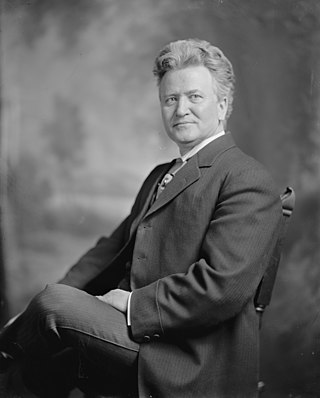
Robert Marion "Fighting Bob" La Follette Sr., was an American lawyer and politician. He represented Wisconsin in both chambers of Congress and served as the governor of Wisconsin from 1901 to 1906. A Republican for most of his life, he ran for president of the United States as the nominee of his own Progressive Party in the 1924 presidential election. Historian John D. Buenker describes La Follette as "the most celebrated figure in Wisconsin history".

The Progressive is a left-leaning American magazine and website covering politics and culture. Founded in 1909 by U.S. senator Robert M. La Follette Sr. and co-edited with his wife Belle Case La Follette, it was originally called La Follette's Weekly and then La Follette's. In 1929, it was recapitalized and had its name changed to The Progressive. For a period, The Progressive was co-owned by the La Follette family and William Evjue's newspaper, The Capital Times. Its headquarters are in Madison, Wisconsin.

Robert Marion La Follette Jr. was an American politician who served as United States senator from Wisconsin from 1925 to 1947. A member of the La Follette family, he was often referred to by the nickname "Young Bob" to distinguish him from his father, Robert M. "Fighting Bob" La Follette, who had served as a U.S. senator and governor of Wisconsin. Robert Jr., along with his brother Philip La Follette, carried on their father's legacy of progressive politics and founded the Wisconsin Progressive Party. Robert Jr. was the last major progressive party politician in the U.S. Senate, ending in 1946 when the party disbanded. La Follette was defeated in the 1946 Republican Senate primary by Joseph McCarthy.
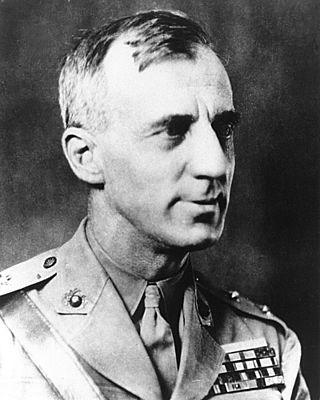
Major General Smedley Darlington Butler, nicknamed the Maverick Marine, was a senior United States Marine Corps officer. During his 34-year career, he fought in the Philippine–American War, the Boxer Rebellion, the Mexican Revolution, and World War I. At the time of his death, Butler was the most decorated Marine in U.S. history. By the end of his career, Butler had received sixteen medals, including five for heroism; he is the only Marine to be awarded the Brevet Medal as well as two Medals of Honor, all for separate actions.

The Progressive Era (1896–1917) was a period of widespread social activism and political reform across the United States focused on defeating corruption, monopoly, waste, and inefficiency. The main themes ended during American involvement in World War I (1917–1918) while the waste and efficiency elements continued into the 1920s. Progressives sought to address the problems caused by rapid industrialization, urbanization, immigration, and political corruption; and by the enormous concentration of industrial ownership in monopolies. They were alarmed by the spread of slums, poverty, and the exploitation of labor. Multiple overlapping progressive movements fought perceived social, political and economic ills by advancing democracy, scientific methods, professionalism and efficiency; regulating businesses, protecting the natural environment, and improving working conditions in factories and living conditions of the urban poor. Spreading the message of reform through mass-circulation newspapers and magazines by "probing the dark corners of American life" were investigative journalists known as "muckrakers". The main advocates of progressivism were often middle-class social reformers.
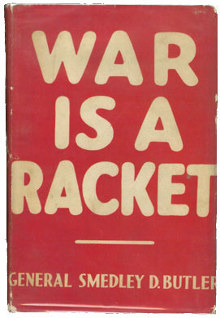
War Is a Racket is a speech and a 1935 short book by Smedley D. Butler, a retired United States Marine Corps Major General and two-time Medal of Honor recipient. Based on his career military experience, Butler discusses how business interests commercially benefit from warfare. He had been appointed commanding officer of the Gendarmerie during the 1915–1934 United States occupation of Haiti.

Philip Fox La Follette was an American politician. He was the 27th and 29th Governor of Wisconsin, as well as one of the founders of the Wisconsin Progressive Party.

Isabelle Case La Follette was a women's suffrage, peace, and civil rights activist in Wisconsin, United States. She worked with the Woman's Peace Party during World War I. At the time of her death in 1931, The New York Times called her "probably the least known yet most influential of all American women who have had to do with public affairs in this country." She was the wife and helpmate of Robert "Fighting Bob" La Follette—a prominent Progressive Republican politician both in Wisconsin and on the national scene—and as co-editor with her husband of La Follette's Weekly Magazine.
The Progressive Party was a political party created as a vehicle for Robert M. La Follette, Sr. to run for president in the 1924 election. It did not run candidates for other offices, and it disappeared after the election. The party advocated progressive positions such as government ownership of railroads and electric utilities, cheap credit for farmers, the outlawing of child labor, stronger laws to help labor unions, more protection of civil liberties, an end to American imperialism in Latin America, and a referendum before any president could lead the nation into war.

The Republican Party of Wisconsin is a conservative political party in Wisconsin and is the Wisconsin affiliate of the United States Republican Party (GOP). The state party chair is Brian Schimming. The state party is divided into 72 county parties for each of the state's counties, as well as organizations for the state's eight congressional districts.
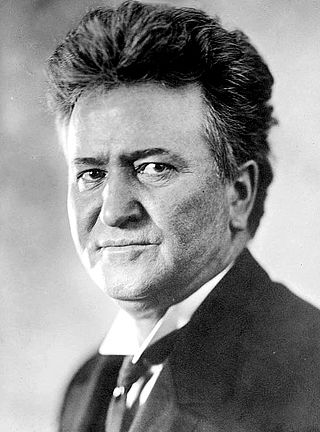
The La Follette family is a prominent family in the United States, especially in Wisconsin. Many of the family members have pursued political office.
The Wisconsin Progressive Party (1934–1946) was a political party that briefly held a dominant role in Wisconsin politics.
Cary Selden Rodman was a prolific American writer of poetry, plays and prose, political commentary, art criticism, Latin American and Caribbean history, biography and travel writing—publishing a book almost every year of his adult life, he also co-edited Common Sense magazine.

The 1924 United States presidential election in Virginia took place on November 4, 1924. Voters chose 12 representatives, or electors to the Electoral College, who voted for president and vice president.

The nomination of Robert M. La Follette for president took place at a convention held in Cleveland, Ohio from July 4-5, 1924. The convention was called by the Conference for Progressive Political Action (CPPA) and included accredited delegates from national trade unions, state branches of the CPPA, and other political organizations. Members of the Socialist Party of America played a prominent role in the organization of the July convention and the subsequent La Follette presidential campaign; representatives of the Communist Workers Party of America were banned.
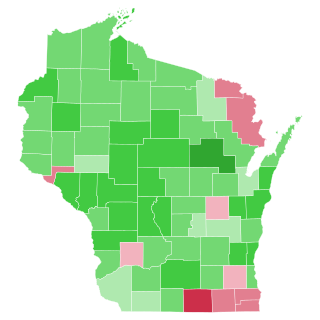
The 1924 United States presidential election in Wisconsin was held on November 4, 1924 as part of the 1924 United States presidential election. State voters chose 13 electors to the Electoral College, who voted for president and vice president.

The 1928 United States presidential election in Wisconsin was held on November 6, 1928 as part of the 1928 United States presidential election. State voters chose 13 electors to the Electoral College, who voted for president and vice president.

The 1932 United States presidential election in Wisconsin was held on November 8, 1932 as part of the 1932 United States presidential election. State voters chose 12 electors to the Electoral College, who voted for president and vice president.

The 1934 United States Senate election in Wisconsin was held on November 6, 1934.

The 1924 United States presidential election in North Dakota took place on November 4, 1924, as part of the 1924 United States presidential election which was held throughout all contemporary 48 states. Voters chose five representatives, or electors to the Electoral College, who voted for president and vice president.
References
- 1 2 "Guide to the Alfred Mitchell Bingham and the Common Sense Collection MS 148". Yale University Library. Retrieved 19 April 2016.
- ↑ John Steinbeck (1 December 1990). Working Days: The Journals of The Grapes of Wrath. Penguin Publishing Group. p. 165. ISBN 978-1-4406-7452-5 . Retrieved 20 May 2020.
- ↑ Elizabeth Dilling Stokes (June 1935). The Red Network. Ayer Co Publishing. p. 139. ISBN 978-0-405-09946-5 . Retrieved 14 March 2009.
- ↑ Yale Library
- 1 2 Smedley D. Butler (November 1935). "America's Armed Forces. 2. "In Time of Peace": The Army" (PDF). Common Sense. 4 (11): 8–12.